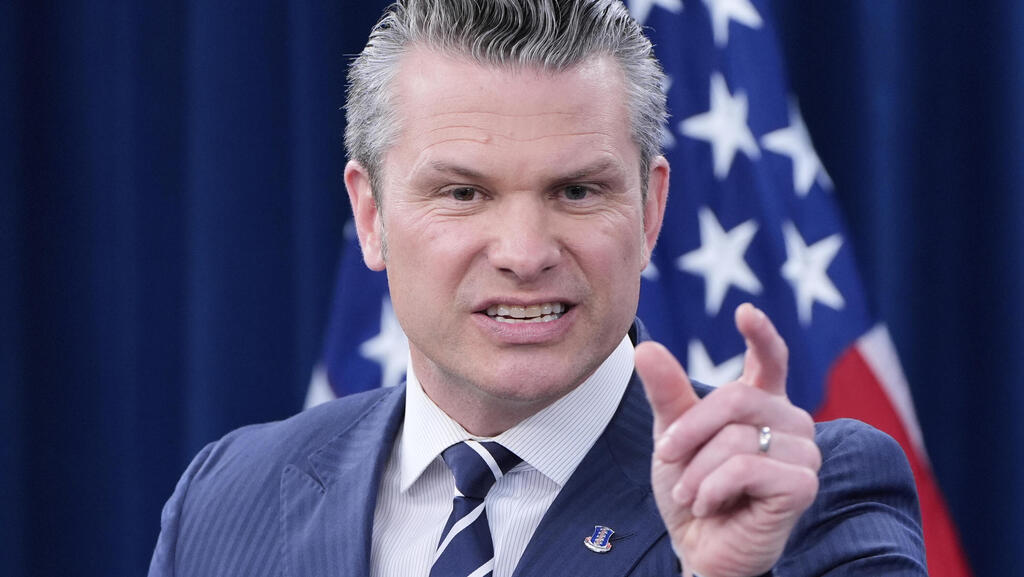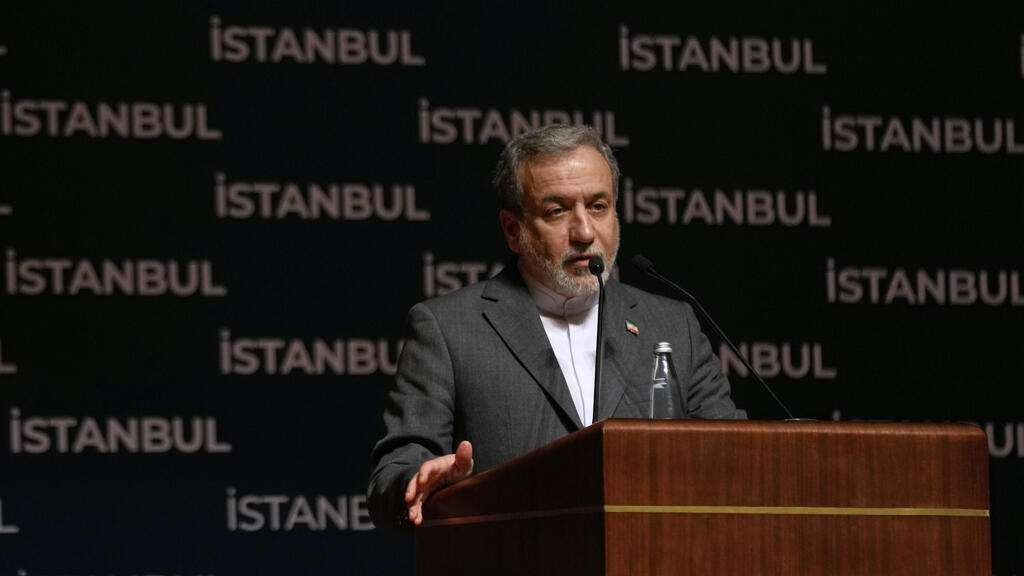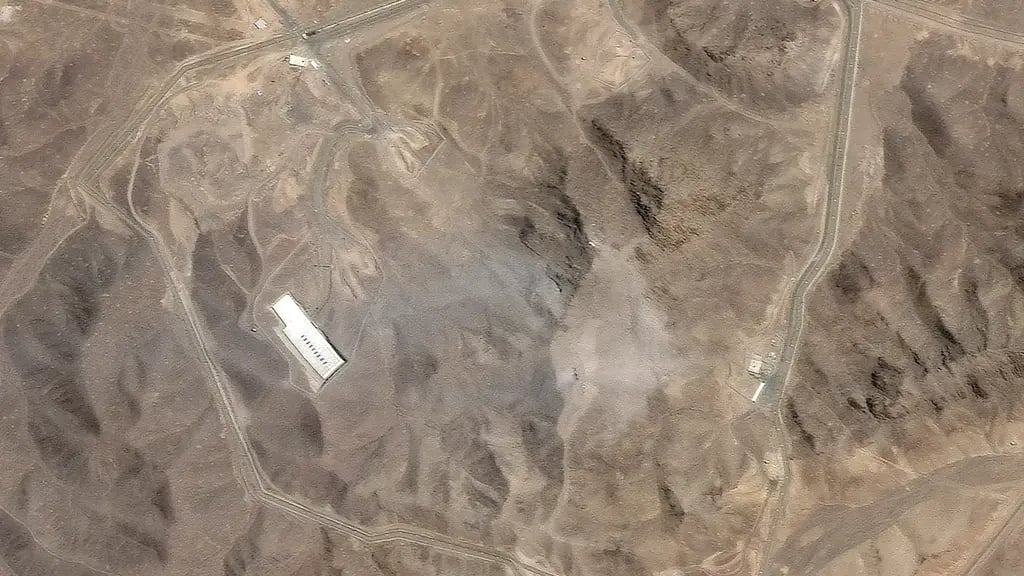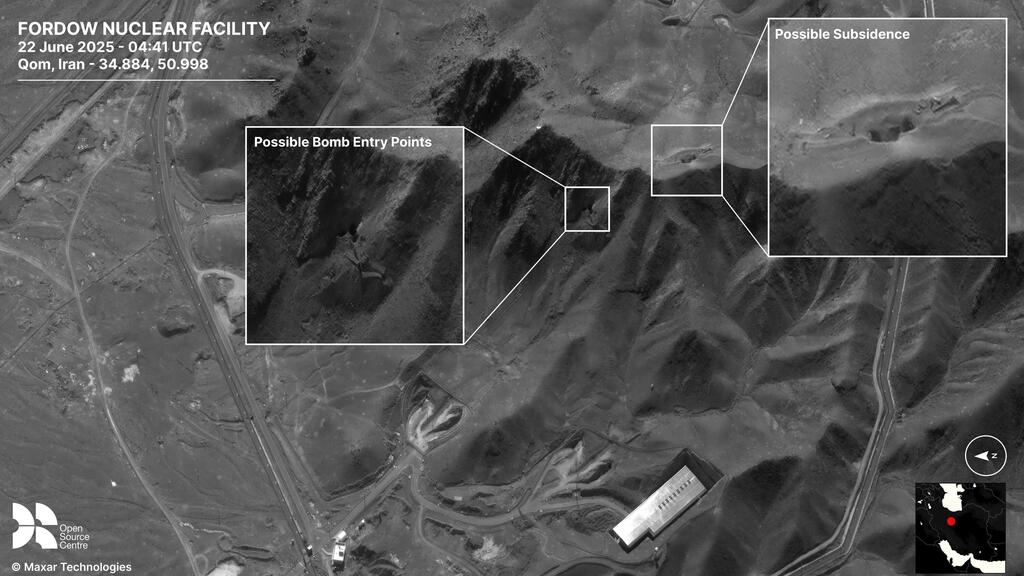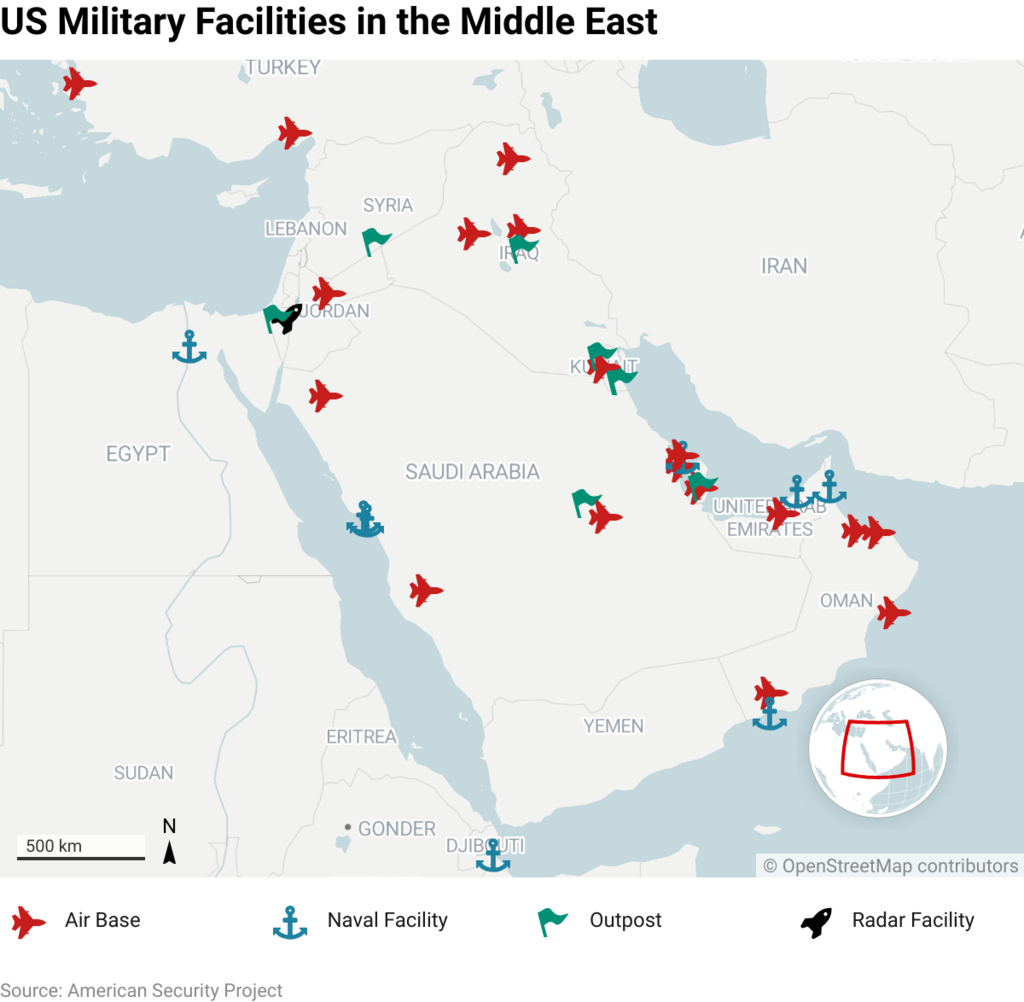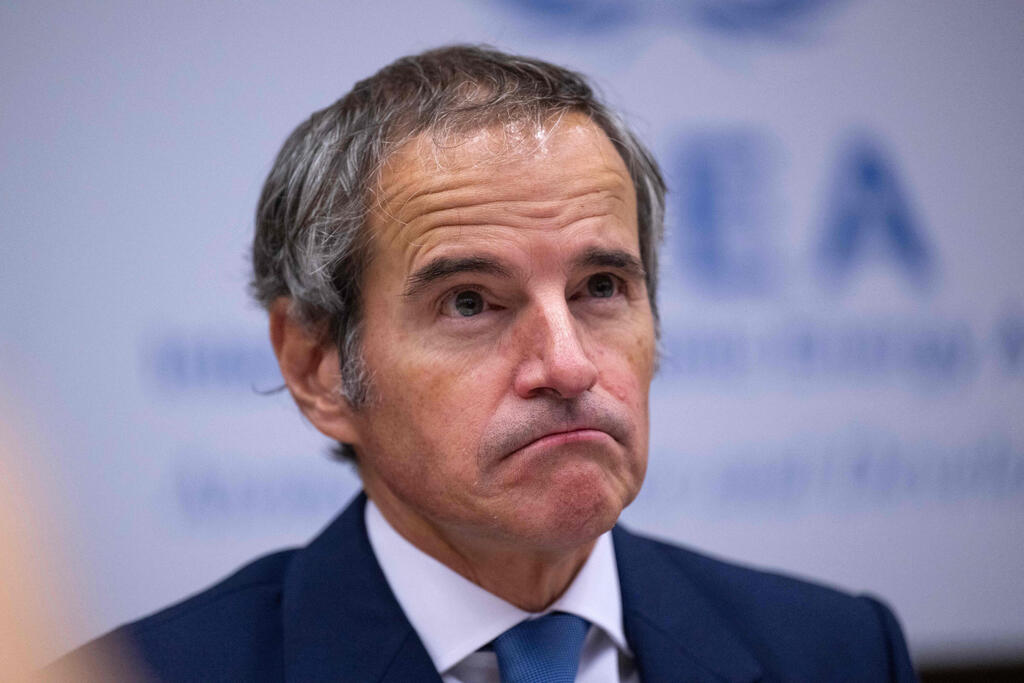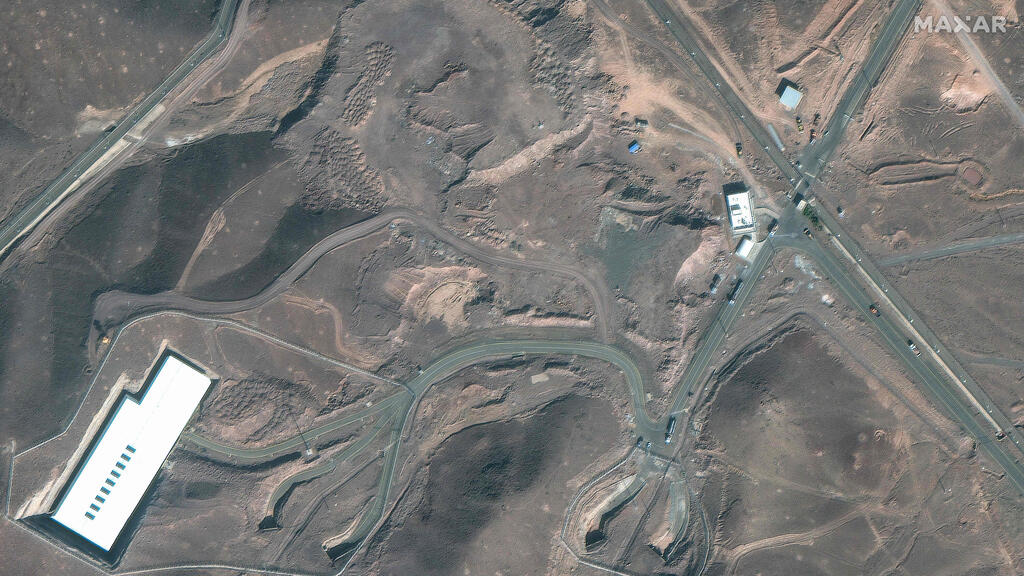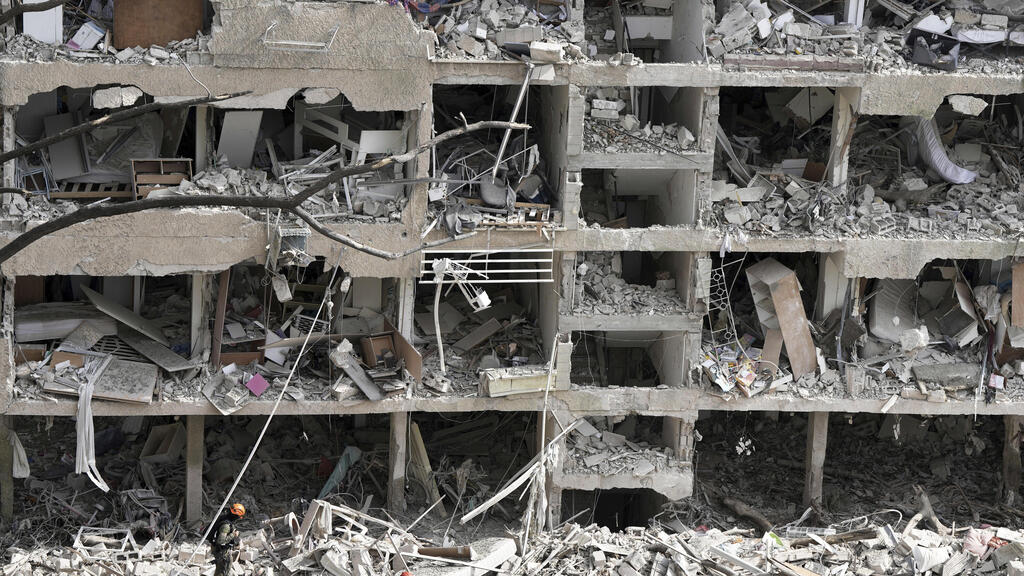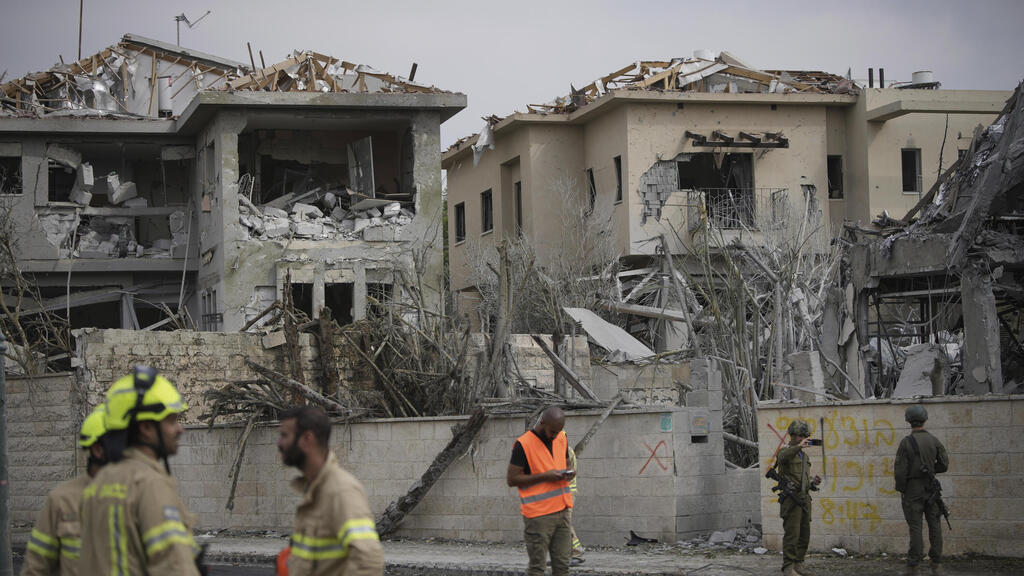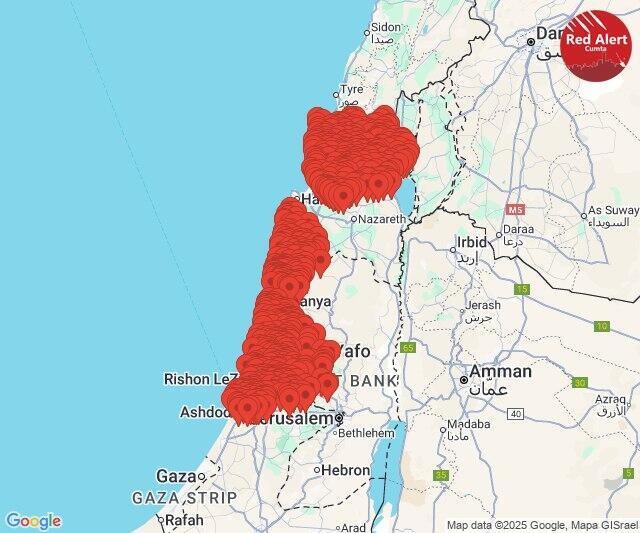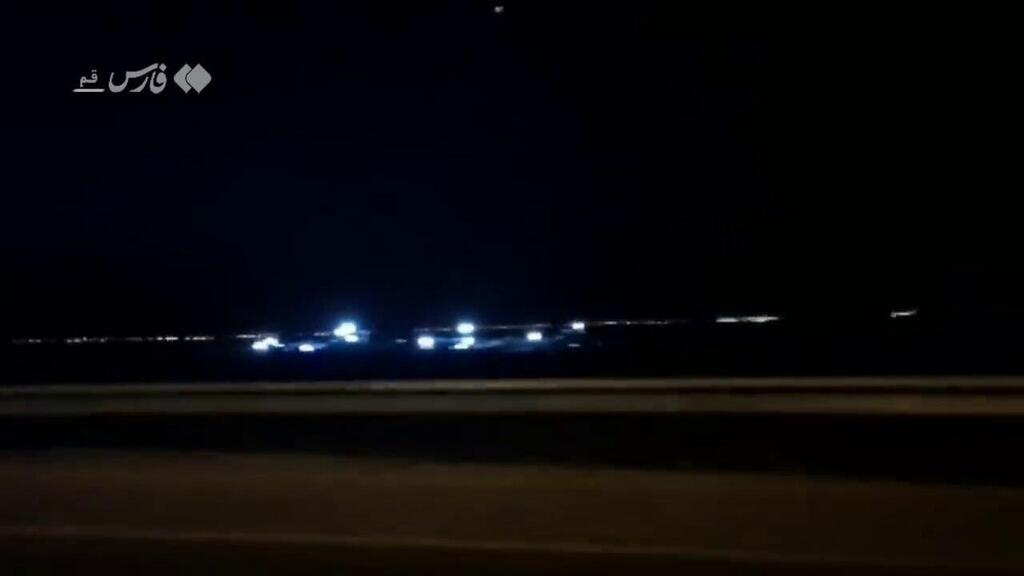A senior American official who requested to remain anonymous told the New York Times that the B-2 attack on the Fordow site did not destroy the heavily fortified facility but severely damaged it.
U.S. Secretary of Defense said Iran's nuclear ambitions have been obliterated.
Fordow uranium enrichment facility after it was struck
"We devastated the Iranian nuclear program, but it’s worth noting the operation did not target Iranian troops or the Iranian people. … Thanks to President Trump’s bold and visionary leadership and his commitment to peace through strength, Iran’s nuclear ambitions have been obliterated,” he said in a press conference at the Pentagon.
Air Force Gen. Dan Caine, chairman of the Joint Chiefs of Staff, said the mission, called "Operation Midnight Hammer, involved decoys and deception, and met with no Iranian resistance.
13 View gallery
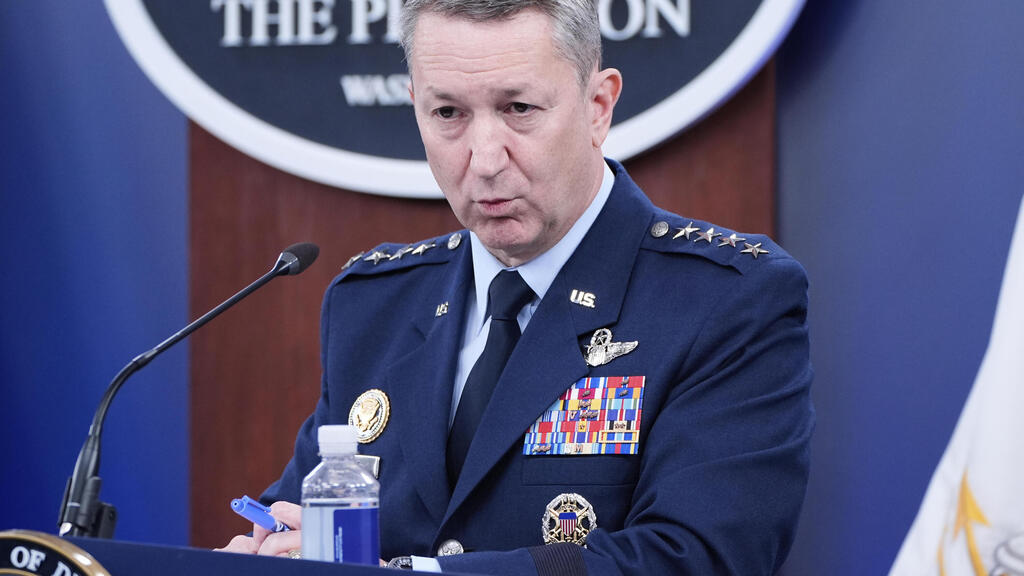

Air Force Gen. Dan Caine, chairman of the Joint Chiefs of Staff
(Photo: Alex Brandon / AP)
British Prime Minister Keir Starmer said that Iran should return to the negotiating table and that an escalation of the situation in the Middle East is in no one's interests, in calls with the leaders of Jordan and Oman, his office said on Sunday.
Canadian Prime Minister Mark Carney on Sunday called on parties to return to the negotiating table and reach a diplomatic solution. "While U.S. military action taken last night was designed to alleviate that threat, the situation in the Middle East remains highly volatile," Carney said.
France's foreign minister said on Sunday that Paris was concerned and urged all sides to show restraint and move towards a negotiated solution to the crisis. "France is convinced that a lasting resolution to this issue requires a negotiated solution within the framework of the Non-Proliferation Treaty," Jean-Noel Barrot wrote on X.
Explosions were heard in Tehran and in Bushehr, where reportedly an Iranian air base came under attack. Strikes were also reported in Yazd province in central Iran.
The European Union's naval mission in the Red Sea, Aspides, on Sunday raised its assessment to "severe" for vessels with U.S. and Israeli interests transiting through the Red Sea, Bab al-Mandab strait and the Gulf of Aden, according to a statement. The assessment comes amid a worsening regional crisis after the U.S. struck Iranian nuclear sites.
Russia condemned the American strikes on Iran's nuclear installations. "The irresponsible decision to subject the territory of a sovereign state to missile and bomb attacks, whatever the arguments it may be presented with, flagrantly violates international law, the Charter of the United Nations and the resolutions of the United Nations Security Council," the ministry said in its statement." The Russian Foreign Ministry said in a statement.
Iranian Foreign Minister Abbas Araqchi will fly to Russia, Iran's strategic partner, to meet Putin.
Iran reserves all options to defend its security, Foreign Minister Abbas Araqchi said on Sunday in Istanbul, adding that Tehran could not return to diplomacy while under attack by Israel and the United States.
"The U.S. showed they have no respect for international law. They only understand the language of threat and force," Araqchi said, adding that Tehran has to respond based on its rights before diplomacy can be reconsidered.
The Iranian Revolutionary Guard Corps (IRGC) said on Sunday that Washington has placed itself directly 'at the front line of aggression' by attacking Iran's peaceful nuclear facilities. The IRGC said the United States neither possesses the initiative nor has the ability to escape the consequences of a severe response.
In a statement, the IRGC said the U.S. military bases in the region are spread out and that along with their size, makes them vulnerable to attack.
Iran’s capacity to fire large numbers of missiles is increasingly limited, the New York Times said on Sunday. "At least half of Iran’s launchers have been destroyed, Nicholas Carl, who studies Iran for the American Enterprise Institute’s Critical Threats Project, told the Times. “As you begin to whittle away at the launchers, the Iranian ability to summon these large volumes of missile fire is diminished,” he said. “And that is a huge problem for Iran.” Read story here
Kuwait set up shelters in the country's ministries complex following U.S. strikes on Iran's nuclear facilities. The shelters can accommodate around 900 people, the Finance Ministry said in a statement on X.
The United States has a military presence across the major oil-producing region, with bases in Kuwait as well as in Iraq, Qatar, Bahrain and the United Arab Emirates
The IDF said the American strikes on Iran's nuclear facilities were carried out in complete cooperation with Israel, but without direct Israeli involvement. Israel resumed its strike on Iran soon after.
Military officials said Israel's attacks disrupted Iran's ability to respond to the American strikes. They said that while the full impact of the attacks was still under review they were clearly significant and added that there are more sites that would be attacked in the future.
IAEA chief Rafael Grossi called an emergency meeting of his agency's 35-nation Board of Governors after the U.S. said it carried out military strikes on Iranian nuclear facilities. Iran's nuclear chief Mohammad Eslami urged Grossi to condemn the U.S. action and take appropriate measures, according to Iran's SNN news network.
European Union foreign policy chief Kaja Kallas on Sunday urged a return to the negotiating table, after U.S. forces struck three Iranian nuclear sites. "I urge all sides to step back, return to the negotiating table and prevent further escalation," she said in a post on X, adding that EU foreign ministers will discuss the situation on Monday.
Smoke rises over the Fordow nuclear facility after the U.S. strike on Sunday
A senior Iranian source told the Reuters news agency on Sunday that most of the highly enriched uranium a the Fordow nuclear facility was moved to an undisclosed location, before the U.S. strike. He said the staffing at the site was also reduced to a minimum
Iran threatened once again to withdraw from the Nuclear Non-Proliferation Treaty (NPT). Parliament Foreign Policy Committee Head Abbas Golroo said on X after the U.S. strikes on three Iranian nuclear facilities. Article 10 states that an NPT member has "the right to withdraw from the Treaty if it decides that extraordinary events have jeopardized the supreme interests of its country."
Lebanese Prime Minister Nawaf Salam on Sunday warned against any involvement in the fighting between Israel and Iran. Salam directed his warnings to the Iran-backed Hezbollah terror group, Iran's main proxy in the region.
The US expanded its bombing of Iranian nuclear sites after Israeli strikes failed to cause sufficient damage. A joint U.S. Central Command (CENTCOM) and IDF damage assessment concluded earlier strikes on Natanz and Isfahan nuclear facilities were only partially effective, with Iranian reconstruction possible within months to a year.
Consequently, the Israeli Air Force conducted a follow-up strike on Isfahan yesterday, while the U.S. allocated two additional Massive Ordnance Penetrator (MOP GBU-57) bunker-buster bombs to definitively destroy centrifuges in Natanz’s underground halls.
This revised strategy also explains the deployment of 12 GBU-57 bombs against Fordow, exceeding the initial single-strike plan, despite the U.S. possessing a limited stockpile of approximately twenty such weapons. Read full story here
F-15 strike Iranian targets
(IDF)
Iran says long-range missiles were used to attack Israel on Sunday. In a statement, the Iranian Revolutionary Guard Corps (IRGC) said it used new evasive tactics to avoid aerial defenses in the latest strike and claimed the missiles targeted the Ben-Gurion International Airport, the Institute for Biological Research and IDF command and control bases.
The IDF said on Sunday that it renewed its air strikes on military targets in western Iran after the missile strikes on Israel earlier. The military said it destroyed the rocket launchers used in the latest barrage caused injuries and damage in several impact sites across the country.
Aftermath of an Iranian missle attack in Tel Aviv
Iran launched a large-scale barrage of scores of missiles against Israel on Sunday, hours after the United States officially entered the conflict, prompting widespread sirens, interceptions and explosions across the country. Over 20 people were wounded including at least 3 children
At least 30 missiles were launched in two waves of attack targeting the north and central areas and Jerusalem and its surroundings. Emergency teams rushed to 10 impact sites including in Tel Aviv and Haifa. "The entire two apartment blocks were destroyed except for their enforced shelters," a paramedic said, in a location where a missile fell in Tel Aviv.
The IDF reported that only some of the projectiles have been intercepted, and sirens continued to sound in multiple regions, including central and northern Israel.
Iranian missile scores direct hit on Haifa
Emergency services received initial reports of rocket impacts in areas of the Sharon region, the Shfela (central lowlands) and near Haifa. Witnesses also reported hearing loud explosions in the center of the country.
Sirens were heard extensively in the Lachish region, the Gush Dan metropolitan area, and across Sharon. Additional alerts were triggered near Jerusalem, in the West Bank, the Upper and Lower Galilee, the Krayot, the Beit She’an valley and Wadi Ara. Earlier Iranian barrages also caused significant damage around Haifa, even in the absence of sirens in the city.
13 View gallery
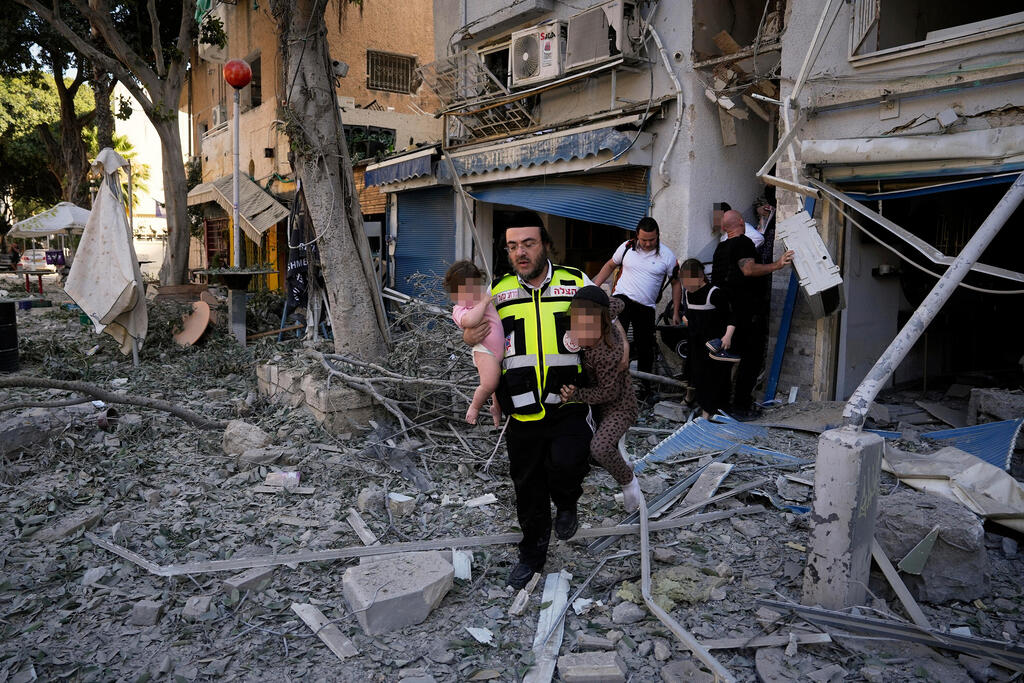

Emergency response teams rescue children from Iranian missile impact site in Haifa
(Photo: AP Photo/Baz Ratner)
The Magen David Adom emergency medical service said that teams were dispatched to more than 10 reported strike sites. Approximately 30 rockets have been fired so far from Iran.
Iran reserves all options to defend itself after U.S. strikes on its nuclear facilities, Foreign Minister Abbas Araqchi said on Sunday on X, saying the attacks were "outrageous and will have everlasting consequences." see more reactions from world leaders
Officials in Jerusalem said they believed the Fordow nuclear reactor was destroyed in the American attack. They said the target of the U.S. bombers in Isfahan was not the reactor already hit in the IDF strikes but a different site dug into the mountain where enriched uranium was stored and that the strike caused heavy damage there.
Get the Ynetnews app on your smartphone: Google Play: https://bit.ly/4eJ37pE | Apple App Store: https://bit.ly/3ZL7iNv
The security government will convene later on Sunday to assess the situation after the American strike on Iran's nuclear sites. Security officials said they believed Iran would renew its attacks on Israel after no missiles were fired in over 24 hours.
Earlier, the IDF said it shot down two hostile aircraft targeting the Arava Desert hours after the U.S. attacked Iran's nuclear facilities in Natanz, Isfahan and Fordow on Sunday.
Iranian authorities said Sunday there was "no danger" to residents in the city of Qom, south of Tehran, following the US attack on a nearby mountain-buried Fordow nuclear enrichment site.
UN Secretary General Antonio Guterres said he was alarmed by the American decision to attack Iran. "This is a dangerous escalation in a region already on the edge and a direct threat to international peace and security," Guterres said. "There is a growing risk that this conflict could rapidly get out of control, with catastrophic consequences for civilians, the region, and the world. I call on Member States to de-escalate and to uphold their obligations under the UN Charter and other rules of international law. At this perilous hour, it is critical to avoid a spiral of chaos. There is no military solution. The only path forward is diplomacy. The only hope is peace."
First published: 12:00, 06.22.25





